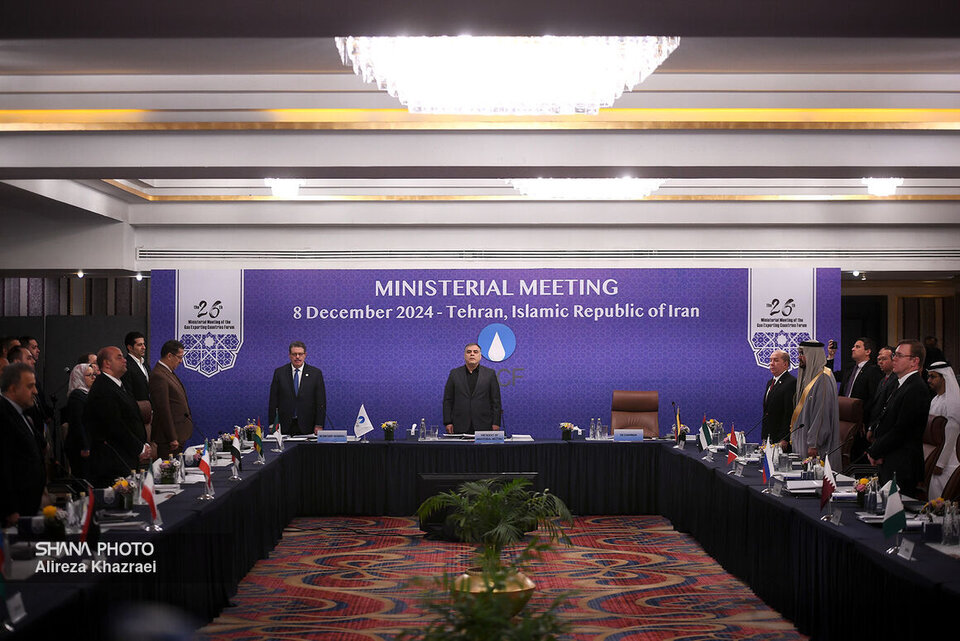Iran hosts GECF meeting highlights gas demand amid global challenges
Iran hosts GECF meeting, highlights gas demand amid global challenges
TEHRAN – Iran has increased its annual natural gas production to 275 billion cubic meters despite U.S. sanctions, while warning that geopolitical tensions are threatening global energy supply chains. Iranian Oil Minister Mohsen Paknejad made the comments at the 26th Ministerial Meeting of the Gas Exporting Countries Forum (GECF) on Sunday in Tehran.

Paknejad emphasized the need for energy cooperation in light of growing instability. He cited regional conflicts in Gaza, Lebanon, and Syria as disruptions to global energy flows, exacerbating energy security concerns. “These tensions, coupled with unilateral sanctions, threaten supply chains and the global economy,” Paknejad said.
Gas demand to remain key by 2050
Paknejad stressed the importance of natural gas in the global energy mix, noting that oil and gas will still supply at least 50 percent of global energy needs by 2050. He cited GECF projections that natural gas’s share will rise to 26 percent by mid-century, but warned that insufficient investments in gas infrastructure could undermine energy security.
Iran’s resilience amid sanctions
Despite years of sanctions, Iran has made significant progress in expanding its gas sector. Paknejad highlighted that Iran now produces 275 billion cubic meters of natural gas annually, with gas accounting for over 70 percent of the country's energy consumption. He reiterated Iran's commitment to advancing environmentally friendly technologies in the sector.
Call for global cooperation
Paknejad called for increased collaboration between energy producers and consumers to enhance energy security and attract investments. “The GECF’s collective resources and technologies are critical to ensuring global energy stability,” he said.
The GECF, comprising 12 member states—including Iran, Russia, Qatar, and Algeria—accounts for 70 percent of the world’s proven gas reserves. This marks Iran’s fourth time hosting the GECF, reinforcing its leadership in global energy policy.
GECF secretary-general highlights gas resilience
In his address, GECF Secretary-General Mohamed Hamel expressed condolences to Iran for the recent loss of former President Ebrahim Raisi and Minister Paknejad’s brother. He commended Iran’s role in the organization’s founding and praised the hospitality shown during the meeting.
Hamel highlighted the continued rise in global gas demand, which has increased by 70 percent since the GECF’s formation. He forecasted a 34 percent increase in natural gas consumption by 2050, emphasizing the importance of natural gas for energy security and sustainability.
Strategic collaboration and gecf progress
Hamel outlined GECF's efforts to enhance collaboration and research, including initiatives like the Doha and Algiers Declarations. He also highlighted GECF’s support for member states in UN-led energy negotiations and its progress in operationalizing the Gas Research Institute.
A unified vision for the future
Hamel concluded by stressing the importance of unity among member countries, noting that GECF is committed to ensuring a prosperous future for natural gas. The organization, which represents 70 percent of global gas reserves, plays a vital role in energy security and market stability.
EF/
source: tehrantimes.com